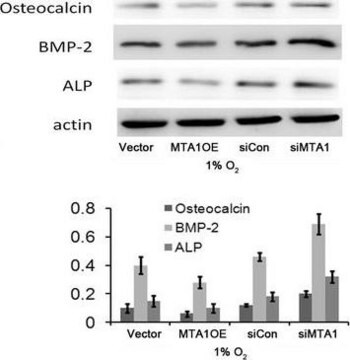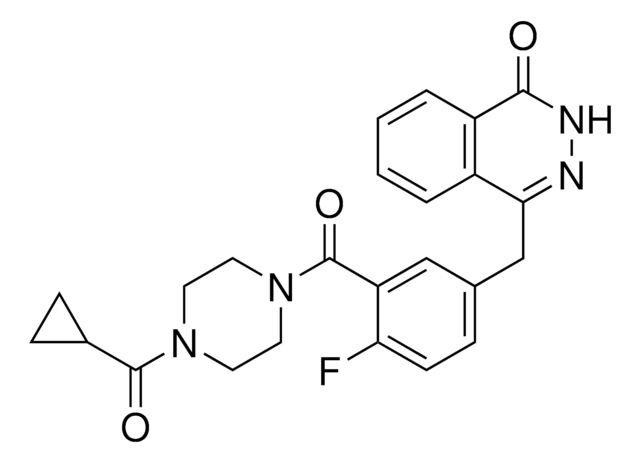B7931
Anti-BNIP3 antibody, Mouse monoclonal
clone ANa40, purified from hybridoma cell culture
Synonym(s):
Monoclonal Anti-BNIP3 antibody produced in mouse
About This Item
Recommended Products
biological source
mouse
conjugate
unconjugated
antibody form
purified immunoglobulin
antibody product type
primary antibodies
clone
ANa40, monoclonal
form
buffered aqueous solution
mol wt
antigen 21.5 kDa
species reactivity
human
concentration
~2 mg/mL
technique(s)
immunocytochemistry: suitable
immunoprecipitation (IP): suitable
indirect ELISA: suitable
microarray: suitable
western blot: 2-4 μg/mL using whole extract of transfected 293T (human embryonal kidney) cells expressing human BNIP3.
isotype
IgG2b
UniProt accession no.
shipped in
dry ice
storage temp.
−20°C
target post-translational modification
unmodified
Gene Information
human ... BNIP3(664)
General description
Specificity
Immunogen
Application
- western blotting
- immunoblotting
- immunocytochemistry
- immunoprecipitation enzyme linked immunosorbent assay (ELISA)
- immunofluorescence analysis
Biochem/physiol Actions
Physical form
Disclaimer
Not finding the right product?
Try our Product Selector Tool.
Storage Class Code
10 - Combustible liquids
WGK
nwg
Flash Point(F)
Not applicable
Flash Point(C)
Not applicable
Certificates of Analysis (COA)
Search for Certificates of Analysis (COA) by entering the products Lot/Batch Number. Lot and Batch Numbers can be found on a product’s label following the words ‘Lot’ or ‘Batch’.
Already Own This Product?
Find documentation for the products that you have recently purchased in the Document Library.
Our team of scientists has experience in all areas of research including Life Science, Material Science, Chemical Synthesis, Chromatography, Analytical and many others.
Contact Technical Service








